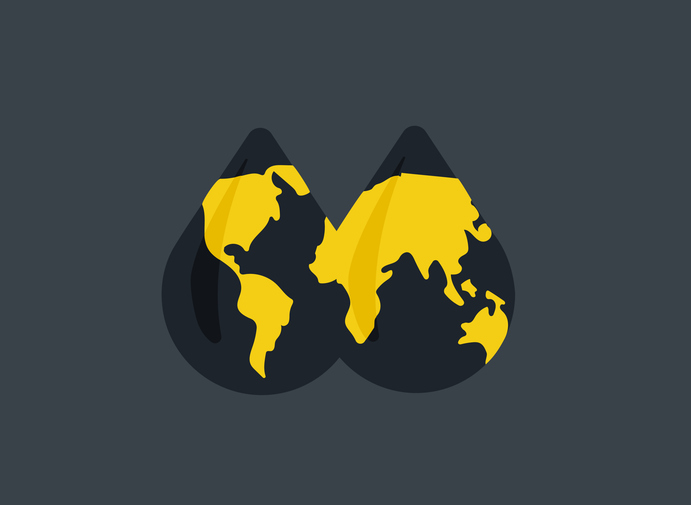Path not taken: the Petroleum and Minerals Authority at fifty
August 30, 2024
Speaking recently on the ABC, Nobel Prize-winning economist Joseph Stiglitz claimed that Australia was “giving away its natural resources”. This he found “mind-boggling”. Would a sovereign mining company have made a difference?
A sovereign mining company was once in Australia’s grasp.
In 1974, an act to establish a Petroleum and Minerals Authority was one of the measures passed at the historic joint sitting of the House of Representatives and the Senate in August 1974. This joint sitting was commemorated brilliantly at Old Parliament House on 6 August under the auspices of the Whitlam Institute, with the aid of film footage restored and colourised by the National Archives of Australia.
The Whitlam Government thought of the PMA as its most important instrument to bring about a higher return for the Australian people from the booming, but increasingly foreign-owned mining industries. To its chagrin, the High Court of Australia held that the PMA Act was invalid. The court found that the required time had not passed between the Senate’s first rejection of the law and its being passed a second time by the House of Representatives. The PMA was stillborn and not revived by future Australian Governments.
The PMA was the most important of a series of measures adopted by the Whitlam Government for the mining industries. In 1973, the government established a new Department of Minerals and Energy, with Wollongong’s Rex Connor as its minister and Lenox Hewitt as its permanent secretary. In 1973, Connor declared that, “just as it has been stated that war is much too serious a matter for generals to control, so a Labor Government says that exclusive control of Australia’s fuel and energy resources is much too serious a matter to be left to individual companies”.
Motivated by this philosophy, Connor and his department established export controls for mining companies. They would, from 1973, need to obtain Government approval for the export deals that they negotiated. These reforms were no flight of fancy. For many years, the Joint Coal Board, the regulator of the black coal industry in New South Wales, had been concerned about the prices at which Australian black coal was being sold abroad. Low prices for coal and iron ore were thought to be the result of Australian companies having to negotiate individually with Japan’s steel cartel backed by the Japanese Government. Some Australia-owned mining companies, like Colonial Sugar Refining and the Broken Hill Proprietary Company, were sympathetic to export controls.
Connor and his department used the controls to encourage companies mining coal and iron ore to form Australian exporter groups, like the Australian Coal Association, to counter the influence of the Japanese steel cartel negotiating as a bloc. The result of these policies was significantly higher prices for Australian coal and iron ore in 1973 and into 1974. The boost in prices made Connor a popular figure in the time before discovery of his role in the controversial “loans affair”, an attempt to borrow large sums of petrodollars without the approval of the Loan Council.
The result of more than a year of work in the DMA, the PMA Act passed the joint sitting in August 1974. The act established a Government-owned and controlled minerals and resources company. The PMA could explore for minerals, provide capital to Australian companies where necessary for resource development and develop Australia’s petroleum and mineral resources either by itself or in cooperation with private companies. Connor’s ambition was that the new authority would develop the recently discovered natural gas resources off the North West Shelf in Western Australia and distribute those resources nationally via a government-owned pipeline.
The Whitlam Government’s dismissal and defeat in 1975 meant that the resources of the North West Shelf were developed, during the time of Malcolm Fraser’s Coalition Government, by a consortium of foreign multinationals and some Australian companies. This development was based on the sale of the gas to foreign markets with some of the gas reserved by its astute premier, Charles Court, for Western Australian use.
Fifty years later, we can speculate what might have happened if the PMA had survived. Its legal basis was robust enough that it would not have been struck down on any substantive grounds. Having survived the High Court, it might not have been able to develop the North West Shelf by itself, but it could probably have done so in cooperation with private companies and multinationals. Norway showed the way in 1972 by establishing a state-owned petroleum company, Statoil. A fully integrated petroleum company by 1980, it acquired operator results on the Norwegian continental shelf. Statoil was eventually privatised in 2001, but the Norwegian Government retained most of its shares and invested the dividends from its petroleum in a sovereign wealth fund.
Figures from 2018 showed that Australia’s gas tax revenue was about $A1.1 billion. By comparison, Norway’s special gas tax raised $19.5 billion and Qatar’s gas royalties were more than $50 billion in the same year.
Australia’s natural gas problem is partly due to its inadequate tax policies, but dwindling Australian ownership of resource companies is also a factor in reducing the Australian people’s share of our petroleum and gas resources. This is because powerful foreign multinational companies not only avoid tax, but repatriate dividends to foreign shareholders. It should be noted, too, that Australian companies involved in developing North West Shelf, like BHP and Woodside Petroleum, later evolved into multinational companies.
Retaining a PMA could have been an instrument to supplement more robust taxation policies to ensure a fair return for Australians for our resources by having at least one major company in Australian hands. It is not too late for the PMA Act to be re-enacted to ensure a fair return for Australians from our critical minerals.
